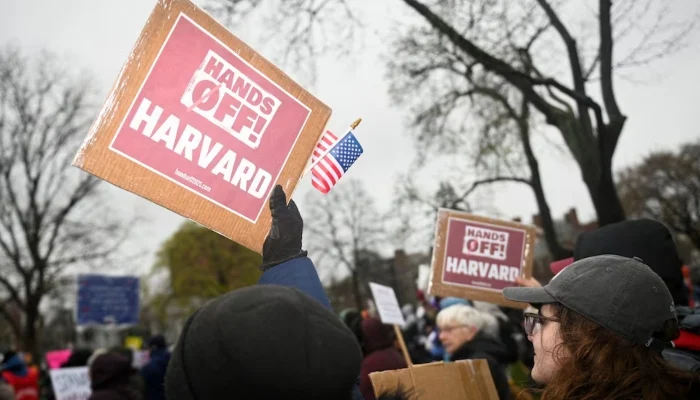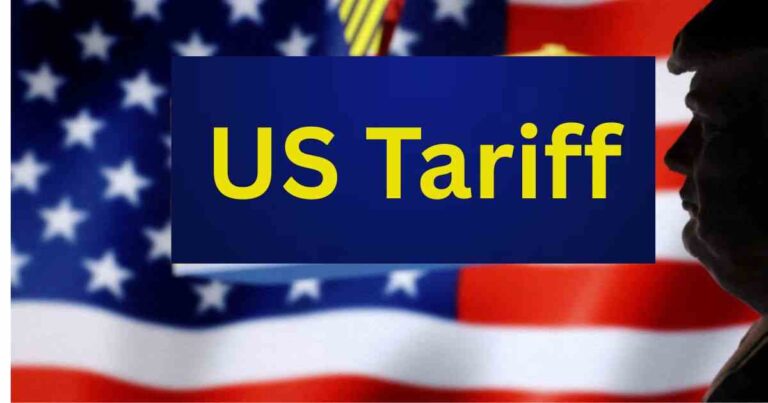Trump Administration Targets Harvard University with Additional $1 Billion Funding Cut Amid Growing Political Standoff
The ongoing clash between the Trump administration and Harvard University has taken a sharp turn, with reports confirming that the government is planning to strip the university of an additional $1 billion in federal funding. This follows a previous decision to revoke $2.2 billion in research grants and educational contracts, bringing the total potential financial hit to over $3 billion. The move is part of a broader and intensifying pressure campaign launched by the administration, triggered by Harvard’s refusal to comply with a set of controversial government demands.
For Latest Updates Please Join Us At WhatsApp
The Origins of the Dispute
Tensions began when the Trump administration sent Harvard University a letter listing several sweeping reforms it wanted the university to implement. These demands included:
- Restructuring leadership roles within the university
- Revising its admissions policies
- Auditing and reviewing diversity-related programmes and initiatives
- Deregistering or ceasing recognition of certain student clubs and organisations

According to The Wall Street Journal, the White House intended for the letter to serve as a confidential opening for negotiations. However, when Harvard President Alan Garber publicly disclosed the demands and firmly rejected them, it sparked an angry response from Washington.
Harvard’s refusal to engage in private negotiations and its choice to expose the demands publicly were seen by Trump officials as a betrayal. The administration reportedly viewed the letter as a good-faith offer that was never meant to be aired in public, and felt blindsided by Garber’s actions.
Harvard’s Defiant Response
In a strongly worded message to the Harvard community, President Alan Garber made it clear that the university would not yield to political pressure.
“The University will not surrender its independence or relinquish its constitutional rights,” Garber wrote. “No government — regardless of which party is in power — should dictate what private universities can teach, whom they can admit and hire, and which areas of study and inquiry they can pursue.”
His statement was not just a defence of Harvard, but a broader declaration of academic freedom and institutional autonomy — principles that many in academia fear are being threatened.
Funding Freeze: A Political Weapon?
The Trump administration’s response to Harvard’s rejection was swift and significant. Within days of Garber’s public letter, the government announced a freeze on billions of dollars in federal research funding tied to the university. The new plan to cut an additional $1 billion in health research grants and contracts adds to the growing financial strain.
Federal funding is a major pillar of support for U.S. universities, especially for advanced research in fields like medicine, science, and technology. While Harvard receives substantial private donations and has a world-leading endowment worth over $50 billion, federal grants still play a vital role in sustaining many of its ongoing research projects and partnerships.

The administration’s actions have sparked concern among educators and policymakers, with many viewing the funding threats as a dangerous precedent that politicises educational funding and undermines academic independence.
A Threat to Non-Profit Status?
The conflict doesn’t stop at funding. The Trump administration has also floated the idea of revoking Harvard’s non-profit status — a move that could have broader implications for its tax benefits and financial structure. Additionally, the administration has hinted at limiting or revoking the university’s ability to admit international students, who form a significant portion of the student body and contribute immensely to Harvard’s cultural and academic environment.
These aggressive tactics have raised eyebrows even among some conservatives, who warn that using federal power to punish dissenting institutions is a slippery slope that could harm U.S. education in the long term.
Harvard’s Financial Fortitude
Despite the threats, Harvard is in a uniquely strong financial position. With its massive endowment, the university is arguably more capable than any other in the country to withstand short- or even long-term funding cuts. Experts suggest that Harvard may use this moment to stand as a symbol of resistance against political intrusion into education.
That said, a loss of billions in federal funds would not be without consequences. Research projects might be delayed or discontinued, partnerships with federal agencies could be disrupted, and other universities may be discouraged from speaking out if they fear similar backlash.
Confusion and Controversy Over the Demands
In a surprising twist, The New York Times reported that the original list of demands sent to Harvard may have been sent in error — drafted without full internal approval. Despite this, the White House has stood by the contents of the letter, treating it as a legitimate policy position and refusing to withdraw or amend its stance.
This confusion has added another layer to the controversy, leaving many to question the process and motives behind the administration’s aggressive stance toward one of the world’s leading academic institutions.
What Comes Next?
The future of this standoff remains uncertain. Harvard appears unlikely to yield, and the Trump administration does not seem interested in backing down either. The situation could escalate further, or it might eventually shift to the courts, especially if the government attempts to revoke Harvard’s non-profit status or impose restrictions on foreign admissions.
What is clear is that this clash goes beyond dollars — it touches on foundational issues such as academic freedom, political influence in education, and the limits of government authority over private institutions.
As the situation unfolds, Harvard’s resistance may become a defining moment in the broader debate over the autonomy of educational institutions in the United States. With billions at stake and principles on the line, this is more than just a funding fight — it’s a battle for the soul of American higher education.
You Might Also Like:
Farooq Abdullah Seeks Centre’s Help After Ramban Landslides
Schools in Kashmir Valley to Remain Closed on April 21 Due to Bad Weathe
Mehbooba Mufti Criticises NC-Led Government, Accuses It of Failing Public Expectations
Mirwaiz Umar Farooq Solemnises Nikah in Srinagar; Asaduddin Owaisi Attends Private Ceremony






